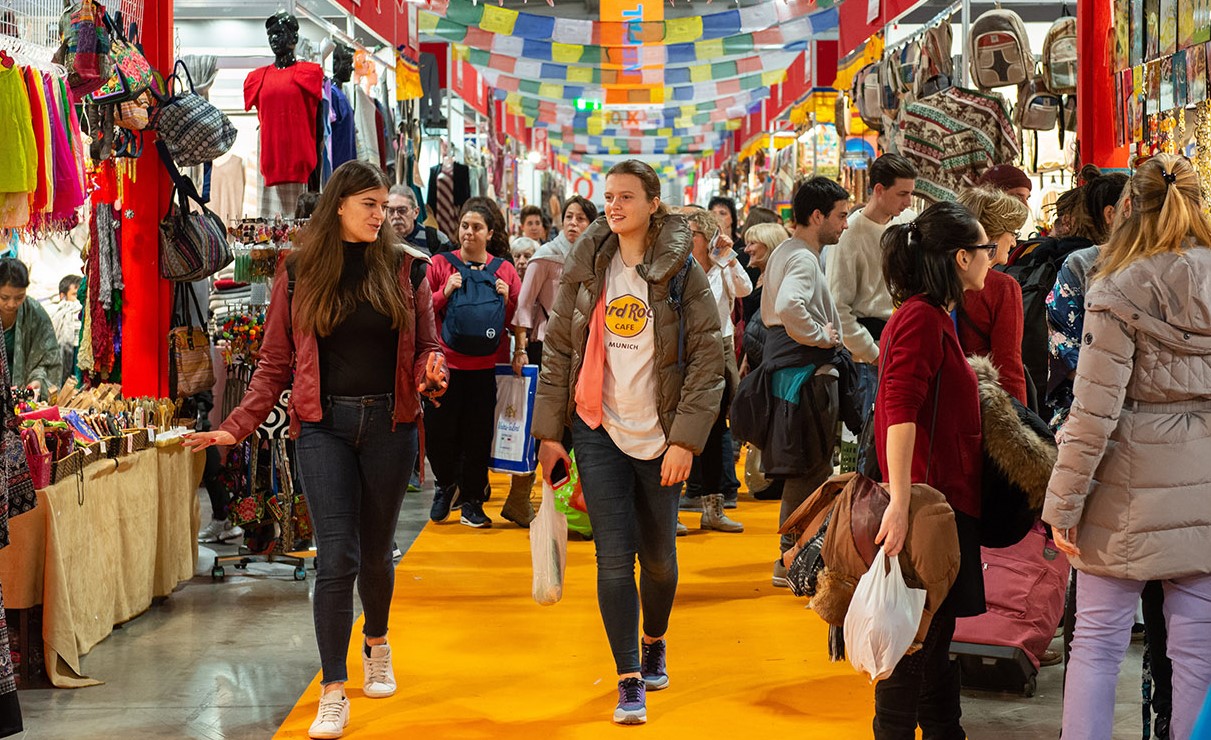For over two decades, Nepali handicraft businesspersons have been participating in international handicraft fairs. They have been doing decent business, say the organizers. The stats also prove that. Nepali traders started to take part in the Artigiano Fair of Italy from 2002. They participated in the fair with five stalls in the first year and over the years, Nepalis has had huge involvement.
Nowadays, there are over 100 stalls of Nepali handicrafts. Due to the unique make and reflection of Nepali culture, Nepali handicrafts have been the first choice for the international buyers, says Keshav Jung Thapa of Krish Enterprises. “International fairs play a very significant role in advancing the sales of handicraft items.” Despite the contribution of these traders, they face a few problems which are hampering their business.
According to the Nepal Rastra Bank (NRB), a person can exchange $500 for foreign travel. For that too, s/he has to show a valid passport with a visa. But for international fairs, NRB allows any company any amount as per their demand. However, the company needs to submit the required documents and invoice. Thapa says the central bank has issued a directive that there will be no Tax Deduction at Source (TDS) for sending the money to international organizers.
However, few banks are unaware of this and they ask for 15 percent TDS. “I don’t know if the central bank sends different circulars to different banks or why is this a problem?” says Thapa. Bashudev Bhattarai, director of Foreign Exchange Management Department of the central bank agrees that the NRB circular doesn’t ask for TDS.
“I have noted this issue and asked the department to ensure that all banks follow the circular,” he adds. Also, the cargo companies have been bearing loss when sending handicrafts abroad. Janak Pyakurel of Speedmark Cargo Pvt Ltd, says only a couple of airlines carry huge cargo. “To manage all these logistics, we have to make a special request for which they charge extra fees.”
Similarly, Nepali traders have to pay 21 percent Value Added Tax (VAT) to export goods. Pyakurel says Nepali companies, for instance, can’t register themselves in Italy. “If the fair organizers offer some subsidies, it will help us.”
According to the former President of Federation of Nepalis Chamber of Commerce and Industry (FNCCI) Bhawani Rana, the demand for handicraft items is very high in international markets. “If only investments could be increased, Nepali traders can export more items to earn foreign currency.” The government should encourage and help traders participate in these events, she says.











